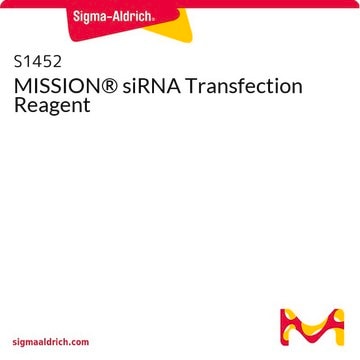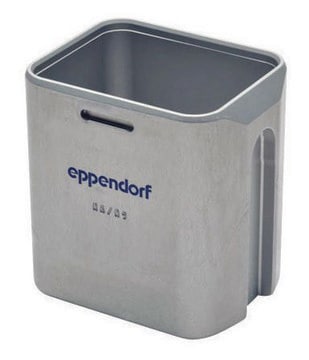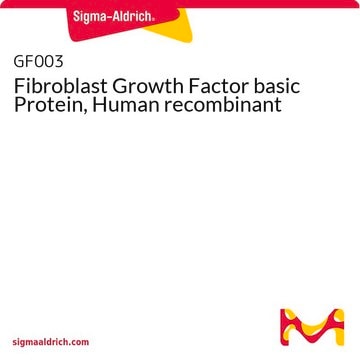EHU065921
MISSION® esiRNA
targeting human PRMT5
About This Item
Productos recomendados
descripción
Powered by Eupheria Biotech
Nivel de calidad
Línea del producto
MISSION®
Formulario
lyophilized powder
secuencia objetivo ADNc esiRNA
TGCAGTGGCTCTTGAAATTGGGGCTGACCTCCCATCTAATCATGTCATTGATCGCTGGCTTGGGGAGCCCATCAAAGCAGCCATTCTCCCCACTAGCATTTTCCTGACCAATAAGAAGGGATTTCCTGTTCTTTCTAAGATGCACCAGAGGCTCATCTTCCGGCTCCTCAAGTTGGAGGTGCAGTTCATCATCACAGGCACCAACCACCACTCAGAGAAGGAGTTCTGCTCCTACCTCCAATACCTGGAATACTTAAGCCAGAACCGTCCTCCACCTAATGCCTATGAACTCTTTGCCAAGGGCTATGAAGACTATCTGCAGTCCCCGCTTCAGCCACTGATGGACAATCTGGAATCTCAGACATATGAAGTGTTTGAAAAGGACCCCATCAAATACTCTCAGTACCAGCAGGCC
Ensembl | nº de acceso humano
Nº de acceso NCBI
Condiciones de envío
ambient
temp. de almacenamiento
−20°C
Información sobre el gen
human ... PRMT5(10419) , PRMT5(10419)
Descripción general
For additional details as well as to view all available esiRNA options, please visit SigmaAldrich.com/esiRNA.
Acciones bioquímicas o fisiológicas
Información legal
Código de clase de almacenamiento
10 - Combustible liquids
Punto de inflamabilidad (°F)
Not applicable
Punto de inflamabilidad (°C)
Not applicable
Elija entre una de las versiones más recientes:
¿Ya tiene este producto?
Encuentre la documentación para los productos que ha comprado recientemente en la Biblioteca de documentos.
Nuestro equipo de científicos tiene experiencia en todas las áreas de investigación: Ciencias de la vida, Ciencia de los materiales, Síntesis química, Cromatografía, Analítica y muchas otras.
Póngase en contacto con el Servicio técnico







